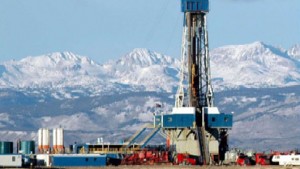Independent Analysis Confirms That Hydraulic Fracturing Caused Drinking Water Contamination
 A recent study from the Environmental Protection Agency showing that chemicals from hydraulic fracturing had contaminated groundwater has just been validated by an independent hydrology expert.
A recent study from the Environmental Protection Agency showing that chemicals from hydraulic fracturing had contaminated groundwater has just been validated by an independent hydrology expert.The impact of natural gas drilling — particularly hydraulic fracturing, or “fracking” — on drinking water and groundwater has been heavily debated. It has also been one of the most serious PR issues for the oil and gas industry.
In December 2011, the Environmental Protection Agency found official evidence that poisonous chemicals from fracking had contaminated water near drill rigs in Pavillion, Wyoming. That study has now been backed up by an independent expert. In a report released today, commissioned by several environmental groups, Dr. Tom Myers writes that:
After consideration of the evidence presented in the EPA report and in URS (2009 and 2010), it is clear that hydraulic fracturing (fracking [Kramer 2011]) has caused pollution of the Wind River formation and aquifer… The EPA’s conclusion is sound.
Myers then details the Pavillion area’s unique geology and water pathways, as well as the shoddy construction of the wells that likely contributed to water contamination. He also outlines a number of ways that EPA can improve on its analysis and continue to collect critical data.
When EPA released the draft findings last December, the natural gas industry and its elected allies were quick to pounce and attacked it as “scientifically questionable,” “reckless,” and lacking “a definitive conclusion.”
Importantly, Myers notes in his report that:
The situation at Pavillion is not an analogue for other gas plays because the geology and regulatory framework may be different.
Nevertheless, it is a reminder for politicians like Oklahoma Senator James Inhofe who continue to claim that there has “never been one case — documented case — of groundwater contamination.”
However, the lack of public data makes it difficult to gather evidence of drinking water contamination. As New York Times reporter Ian Urbina noted in an investigation last August, researchers often are:
…unable to investigate many suspected cases because their details were sealed from the public when energy companies settled lawsuits with landowners.
The oil and gas industry is exempt from portions of a number of environmental laws, including the Safe Drinking Water Act, the Clean Water Act, and the Clean Air Act.
You can return to the main Market News page, or press the Back button on your browser.

